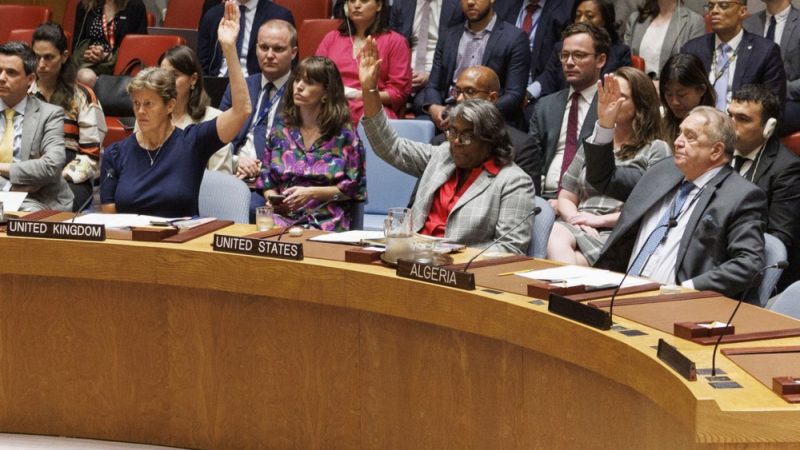Finally, light seems to be appearing at the end of the tunnel. That could be the best way to describe the United Nations Security Council’s (UNSC) resolution on 10 June endorsing a US-backed ceasefire proposal aiming to end Israel’s nine-month assault on Gaza. The vote on the United States-sponsored resolution was 14-0, with Russia abstaining. The latter explained it could not be a party to the resolution since the details had not been made known to it.
The world has been waiting with bated breath for this moment. The attacks by Israel on Gaza following equally mindless killings and abduction in Israel by Hamas on 7 October, 2023 have been taking a heavy toll of civilian lives in Gaza while maiming thousands of Palestinians on a daily basis. Peace proved to be elusive because of the belligerence of Israeli Prime Minister Benjamin Netanyahu who announced Israeli forces would not stop until after the Hamas military and governing capabilities were destroyed lock, stock and barrel. The fact that such a goal is impossible to achieve did not seem to dawn on Israel which continued to be blinded by rage and is unwilling to heed any international appeal and pressure to stop the bloodshed.
The UNSC resolution hails a three-phase ceasefire proposal announced by US President Joe Biden last month, which calls for an initial six-week ceasefire and the exchange of some Israeli captives held in Gaza for Palestinian prisoners held in Israeli jails. The second phase would include a permanent ceasefire and the release of the remaining captives. The third phase would involve a reconstruction effort for the devastated Gaza Strip. The whole exercise will be crowned with a permanent resolution of the conflict through the implementation of a two-state formula that envisages the formation of a Palestinian state incorporating Gaza with the West Bank.
The US iterates that Israel has accepted the proposal, though some Israeli officials have promised to continue the war until the elimination of Hamas, the Palestinian group that governs Gaza. The resolution calls on Hamas, which initially said it viewed the proposal “positively,” to accept the three-phase plan. It urges Israel and Hamas “to fully implement its terms without delay and without condition.”
Hamas has been clever to quickly welcome the resolution stating that it was ready to cooperate with mediators and enter indirect negotiations over the implementation of the principles of the agreement. As the UNSC passed the resolution overwhelmingly, it is binding in international law. It may not be the best but this is probably the most practical solution suggested so far.
Hamas has frequently said that any deal must lead to a permanent ceasefire, a full Israeli withdrawal from the Gaza Strip, an end to the Israeli siege of Gaza, reconstruction and “a serious exchange deal” between captives in Gaza and Palestinians held in Israeli jails.
Whether Israel and Hamas agree to go forward with the plan is under a question mark. But the resolution’s strong support in the UN’s most powerful body puts added pressure on both parties to approve the proposal. For the US administration the resolution of the conflict is of utmost importance. If the plan materialises, it would give a huge mileage to US President Biden in his bid to win the presidential election this November for the second term. That is the reason why Biden is leaving no stone unturned to make his trusted friend and ally – Netanyahu – reconcile to reality and declare a ceasefire.
Earlier on 10 June, Hamas and Palestinian Islamic Jihad leaders met in Qatar to discuss the proposed ceasefire deal and they spelt out what they expect from it. Algeria’s UN Ambassador Amar Bendjama, the Arab representative on the council, succinctly summed up the implications when he said the text of the deal is certainly not perfect, but it at least offers a glimmer of hope to the Palestinians. The alternative is the continuing killing and suffering of the Palestinian people.
Diplomacy now stands a chance and it is hoped the global economic crisis primarily caused due to the raging conflict in the Middle East may ease off to a great extent.
